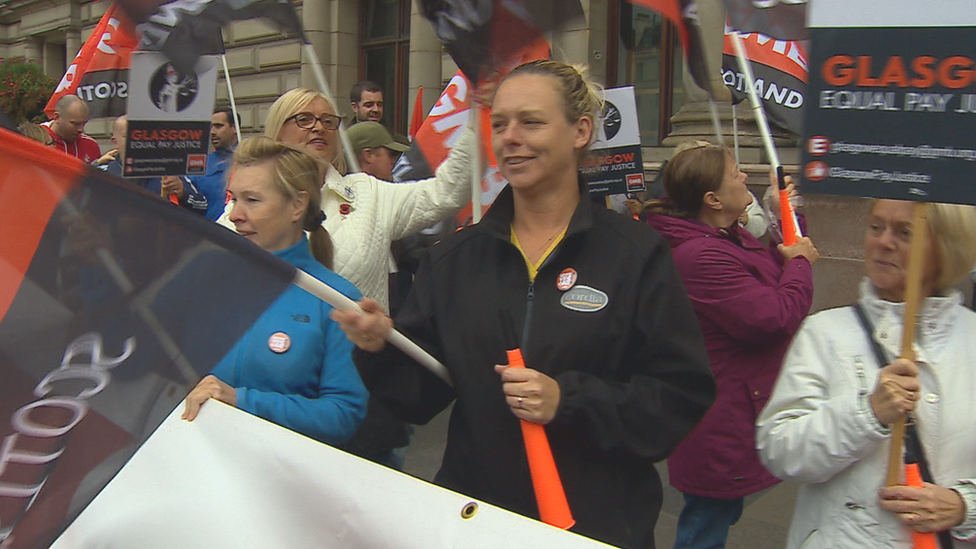Deal struck in Glasgow council equal pay dispute
- Published
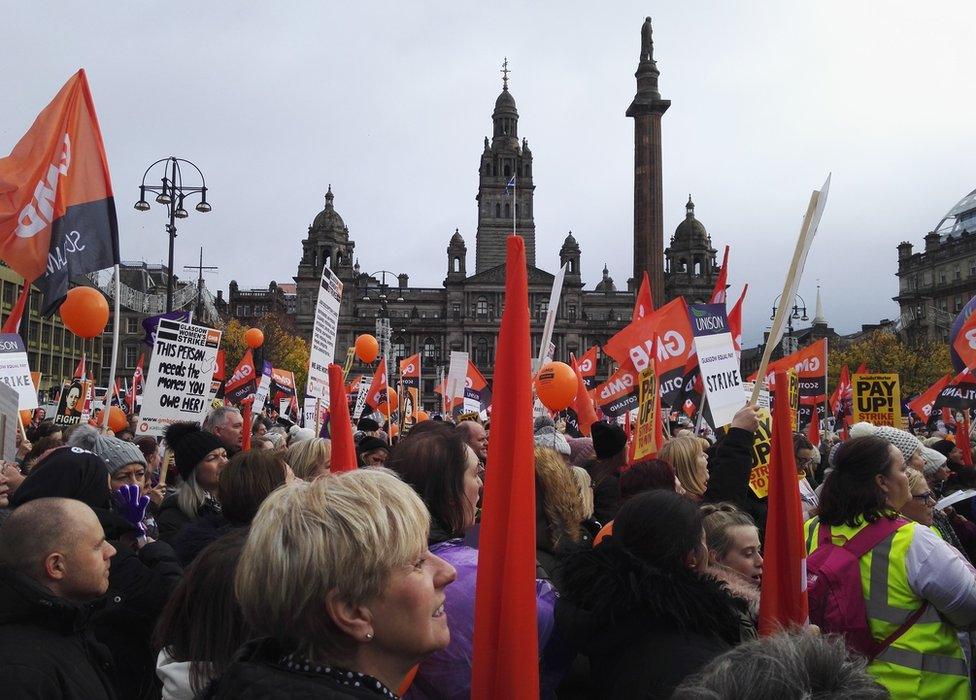
The strikers marched to George Square for a rally in front of City Chambers
An agreement has been reached in the long-running dispute over equal pay at Glasgow City council.
The council, the GMB and Unison unions and the legal representative of other women involved have confirmed there is agreement in principle on a package of payments to resolve unequal pay claims.
It is likely the payments will total more than £500m and payments will be paid from April this year.
Thousands of council workers went on strike over the issue last October.
In a statement on Thursday Susan Aitken, the leader of Glasgow City Council, confirmed that an agreement had been reached.
She said: "Almost exactly a year since the city government led on the hugely significant step of abandoning many years of litigation on equal pay, I am delighted that the council and claimants representatives have agreed an offer which I will recommend to committee for their approval in the coming weeks.
"We were clear that this was always likely to take at least a year and the sheer volume of cases involved and the complexity of the council's pay and grading arrangements were such that this was never going to be easy.
"My commitment to resolving this issue has never wavered and I have never needed to be convinced of the case for equality."
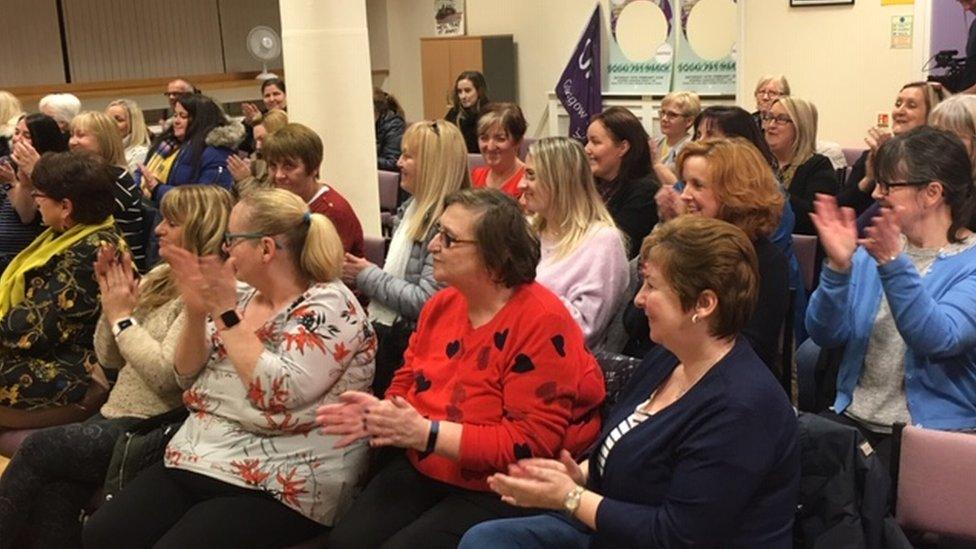
Council workers applaud the news
The local authority announced in January 2018 that it planned to reach a negotiated settlement on thousands of equal pay claims arising from a pay and conditions scheme introduced more than a decade ago.
Campaigners said the scheme led to workers in female-dominated roles such as catering or cleaning receiving up to £3 an hour less than those in male-dominated areas such as refuse collection.
Following two judgements against the council in the Court of Session, the SNP-led administration said it had "grasped the nettle" and planned to settle about 12,000 claims.
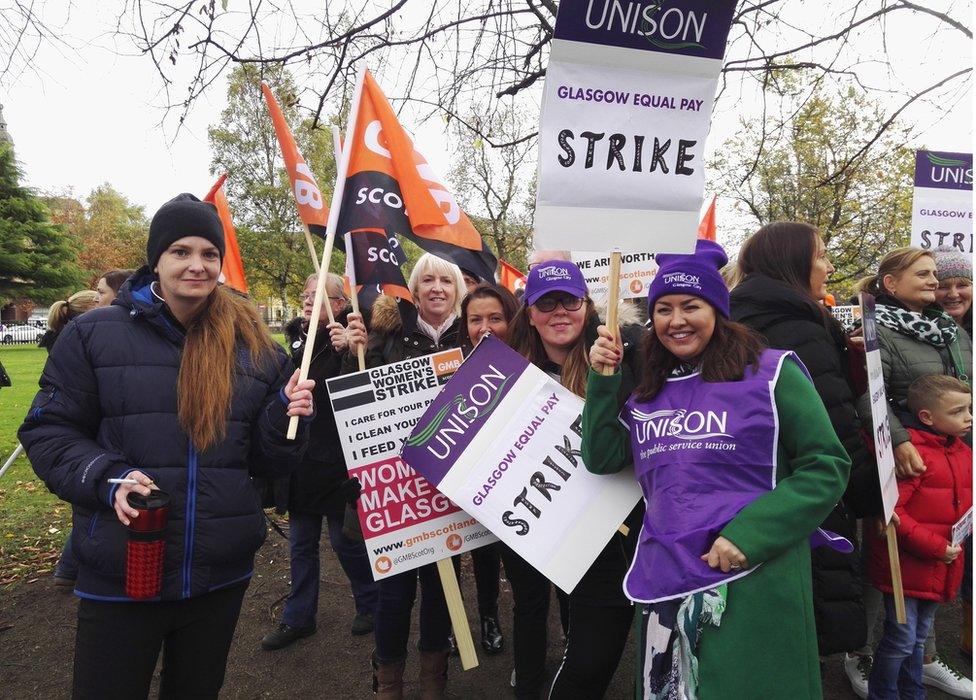
Unions welcomed the deal offered by the council.
However council workers took strike action in October amid concerns about a "lack of progress" on the equal pay claims from thousands of female workers.
Primary schools and nurseries closed and other services were hit on the first day of the 48-hour action.
The council said it hoped to reach an agreement with workers, but that the walk-out was unnecessary.

Analysis by BBC Scotland local government correspondent Jamie McIvor
It has been a long and protracted process, but the equal pay dispute at Glasgow City Council now looks likely to be settled.
Many similar claims have been settled across Scotland in recent years.
But this one was proving more significant because of the number of claimants, the potential cost and the length of time the process was taking.
Council leader Susan Aitken always stressed her support for the women involved.

Cllr Aitken said it had been an "extremely challenging process".
And she added: "After a decade of obstruction and inaction, in a relatively short space of time we have now reached agreement which delivers the pay justice these women long have fought for.
"I am proud to be able to recommend a settlement to right this historic injustice and I trust colleagues across the chambers will support this deal and the work we must undertake to address the future challenges it places before us."
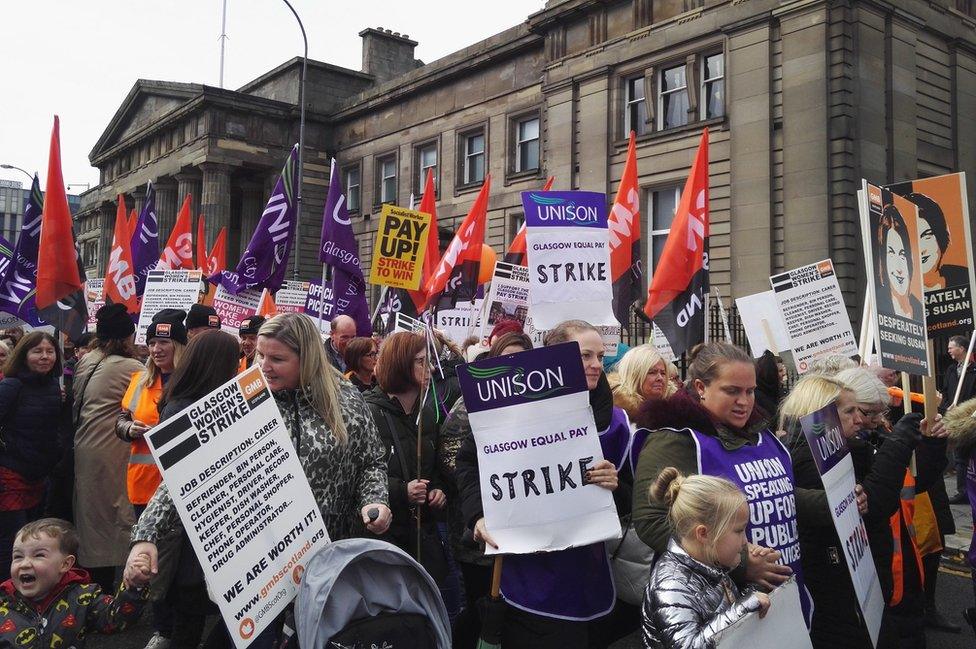
The strikers marched from Glasgow Green to City Chambers in George Square last year
Claimants and members of Glasgow City Council must now approve the deal before any payments can be made. The council also has to raise funds to make payments and finalise logistical details.
It is thought the council will use methods such as remortgaging sports centres to pay for settlements, however it will not dispose of significant assets.
Workers are expected to receive money in the next financial year, but by the end of December.
Dave Prentis, Unison general secretary said women working for Glasgow City Council were "a step closer to equal pay".
He continued: "Having gone to court and been out on strike, it looks like the end is now in sight.
"Although there may be a few more months to wait before the women finally get their cheques, this is truly a day to celebrate."
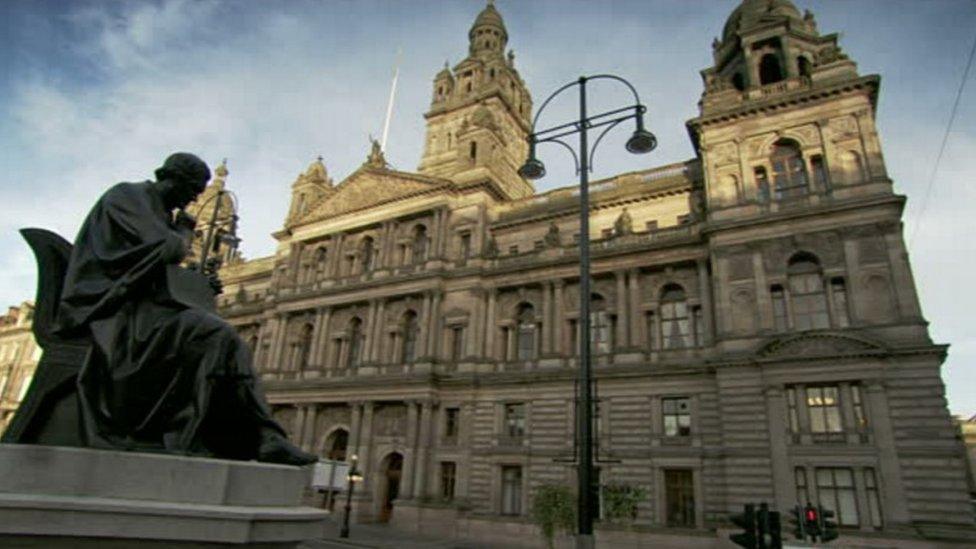
Unite said the deal on offer "addresses the historic wrongs".
Wendy Dunsmore, Unite regional industrial officer added: "This is a day of celebration for the workers in Glasgow City Council who were unfairly treated and discriminated against.
"These workers have been financially disadvantaged for years. The deal addresses these historic wrongs. Unite members will be delighted that the many years of wait is almost at an end."
'Significant moment'
GMB Scotland Organiser Hazel Nolan highlighted how payments would not make up for lost time.
She said: "This is a significant moment and is recognition of the value of women in this city, brought about by the women themselves understanding their own value and fighting for it together.
"Much will be said about the scale of the settlement reached but when you're a worker on a wage what you're selling ultimately is your time, and decades of systematic gender discrimination meant that women in Glasgow were forced to work longer hours for less.
"We need to be clear that this can only financially compensate women for the time stolen from them, the time that could have been spent with their families and loved ones can't be repaid.
"What is important now is that the claimants and their families can have confidence in this agreement and in the process of delivery in the coming weeks and months."
- Published23 October 2018
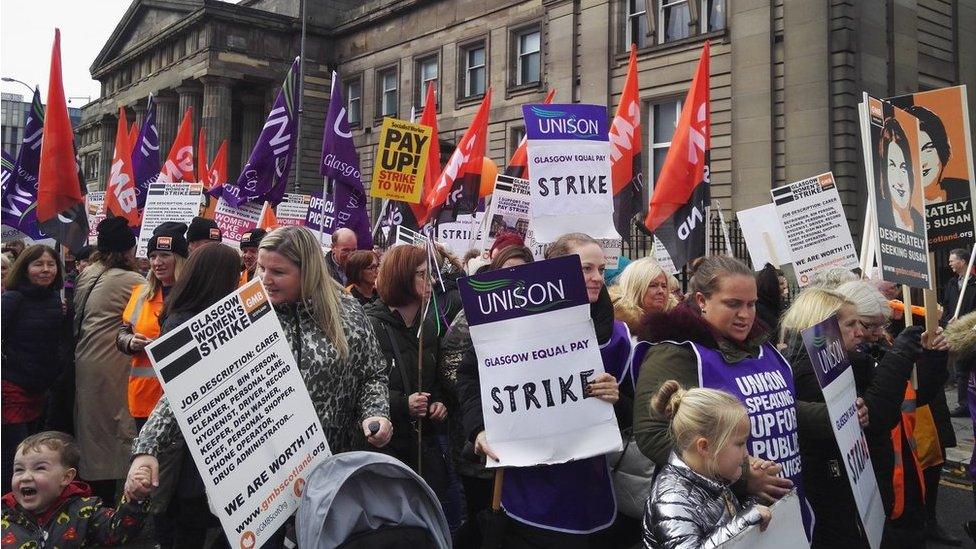
- Published13 September 2018
